Large Farm Week 2024
In late August 2024, Better Cotton held its inaugural Large Farm Week in Türkiye. The four-day affair was an eventful in-person convening of our large farm partners in cotton.
Read moreIn late August 2024, Better Cotton held its inaugural Large Farm Week in Türkiye. The four-day affair was an eventful in-person convening of our large farm partners in cotton.
Read more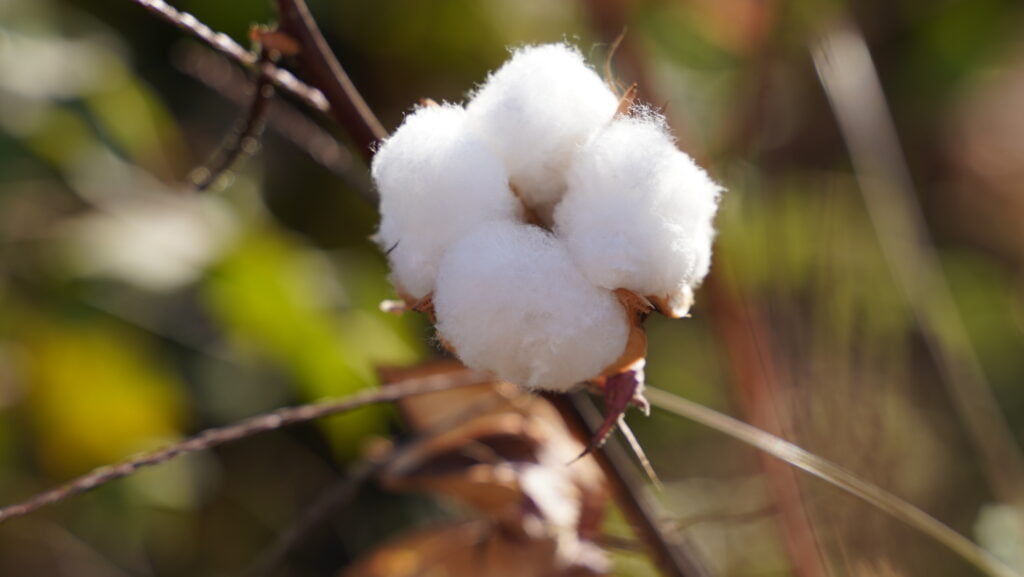

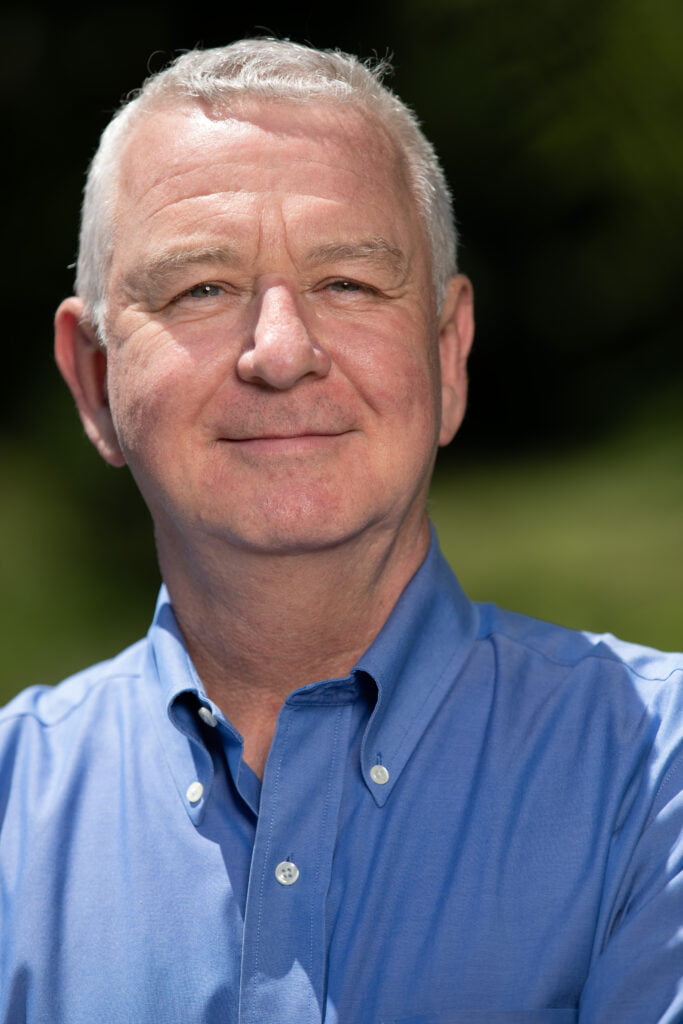

By Alan McClay, CEO at Better Cotton
As the world’s largest cotton sustainability initiative, Better Cotton’s goal is to drive significant, lasting impact as we support the production of more equitable and sustainable cotton. In just 15 years, we have aligned more than a fifth of global cotton production with our standards by balancing rigorous assurance with an adaptable framework that works for farmers in various contexts.
Our commitment to continuous improvement is a cornerstone of our strategic plans. That’s why our approach has always been about balancing robust assurance with fair costs for farmers and members. As part of this commitment, we have started the journey to become a certification scheme, ensuring that we meet new and emerging legislative requirements while maintaining a robust and credible standard.
This approach, which places emphasis on the use of third parties to conduct assessments and make certification decisions, complements our existing assurance processes by adding a layer of independence and credibility.
It is encouraging to see momentum build in the external legislative landscape. Key EU regulations such as the Directive on Empowering Consumers for the Green Transition (ECGT) align with our goals, and provide the additional impetus needed to advance our certification efforts.
At this pivotal moment, we see third-party certification bodies as essential to bolstering the credibility of our work and amplifying the good work of cotton farmers globally. Our transition to certification, combined with evolving traceability capabilities, will not only strengthen the value chain, but also increase demand for more sustainable cotton.
This journey will culminate in a new product label, enabling our network of retailers and brands to proudly showcase their commitment to sustainable cotton production. From farm to consumer, we are committed to catalysing the entire sector, supporting continuous improvement, and advancing the lives of cotton farmers worldwide.
The success of this transition will be predicated on active engagement from all members across the supply chain. Whether you are a retailer, brand, or one of many valued supply chain actors, we are counting on your support to turn this into a reality.
In the coming weeks and months, we will conduct public consultations on some of the changes to our assurance approaches and provide updates to our Chain of Custody and Claims Framework.
Watch this space for more information on our journey to certification from our new Head of Certification, Tom Owen.
Thank you for your continued support as we embark on this important new chapter in Better Cotton’s journey.
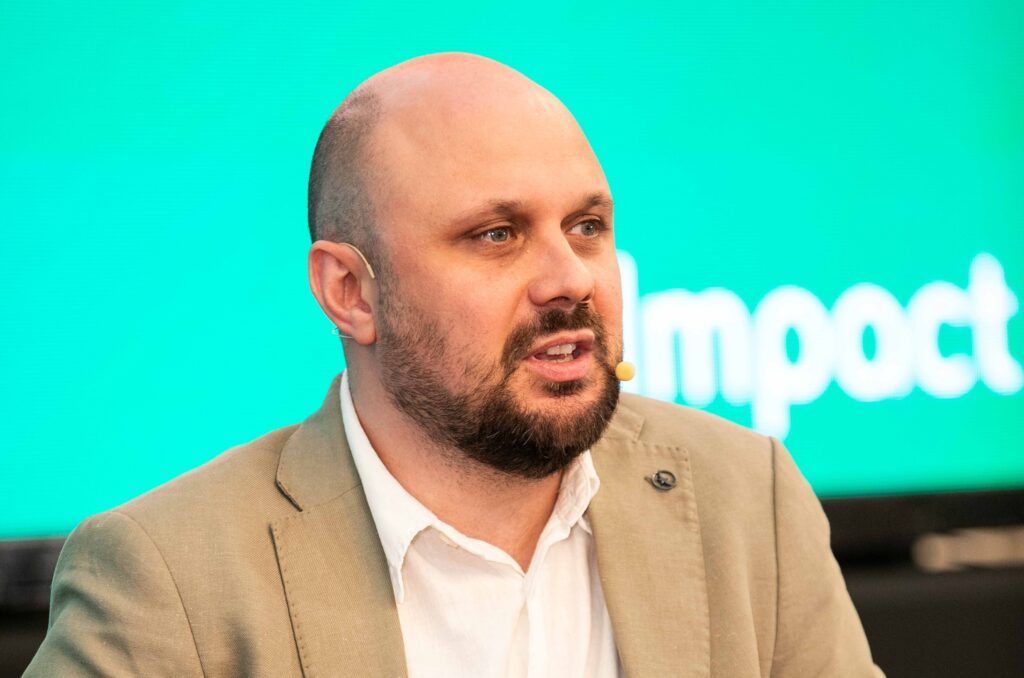

In June, we held our annual Better Cotton Conference in Istanbul, Türkiye, bringing together over 400 attendees online and in-person for two days of highly insightful discussions on how to accelerate impact at field level.
The conference wouldn’t be possible without the generous support of our sponsors. This year, our headline sponsor was USB Certification, a global auditing and certification provider which aims to increase customers’ competitiveness and sustainability through national and international accreditations. It is also an approved third-party verifier for Better Cotton, authorised to carry out assessments against our Chain of Custody Standard.
During the conference, we sat down with Ali Ertuğrul, Technical and Quality Manager for Textiles and Recycling at USB Certification, to discuss why events like the Better Cotton Conference are so important for the company.
He explained USB Certification’s journey in the cotton sector, stressing the responsibility the organisation has to share the challenges they have faced and the lessons they have learned through their experiences with other actors in the sector in order to support collaborative change.
He also highlighted the importance of centring farmers in storytelling to increase understanding of the real-world impact of the decisions that are taken downstream in the supply chain:
People’s lives are at stake. The environment is at stake. So whatever we do, whatever action we take, we have to focus on this in the everyday work that we’re doing. And by we, I mean not only certification bodies, but also programme owners, brands, retailers, all the supply chain actors and also farmers and producers.
Lastly, he emphasised the role of policy in driving positive change in the cotton sector. “Policy changes are important because we, as private sector participants, can only do so much,” he noted, expressing his optimism about the growth of due diligence directives across the world.
To hear what Ali had to say in full, check out the video below.
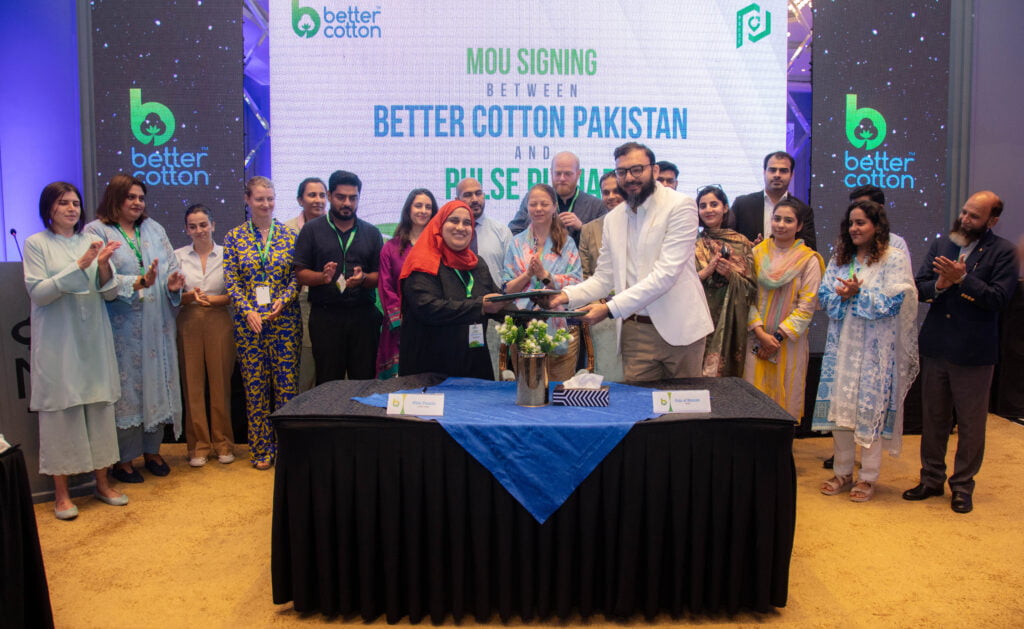

Better Cotton Pakistan has announced a strategic partnership with the Punjab Urban Land Systems Enhancement (PULSE) initiative to improve verifiable cotton farming data and enhance transparency within the textile supply chain.
In smallholder countries such as Pakistan, the large number of farms – often less than two hectares in size – makes data collection challenging without digital tools
This partnership with PULSE aims to leverage its geospatial capabilities, corroborate the field-level data of licensed farms, and reduce the cost of manual data creation and validation.
PULSE has had great success in modernising field boundaries demarcation across Punjab. For us, it presents a great opportunity both to streamline data collection and ensure it mirrors the results validated by the province’s government.
This partnership will add a new layer of credibility to Better Cotton’s footprint and outreach data. The validation of seasonal area under cotton through satellites and machine learning models will enhance transparency, data traceability and trust in the supply chain.
Following a recent initiative to digitalise field data collection for the 2024 cotton season, Better Cotton Pakistan aims to further enhance its data accuracy and efficiency.
By sharing farmer data with PULSE for validation, Better Cotton Pakistan will strengthen its Assurance Programme – which ensures that licensed farmers comply with the organisation’s Principles & Criteria (P&C) – and align with the production and processing of Traceable Better Cotton, which launched last year.
PULSE commits to sharing the attributes of its ‘Digital Gurdawri’, a bi-annual record of the crops grown on land across the province, to which Better Cotton Pakistan can contribute. It will also offer technical support and training on how its geospatial data capture works and how it can benefit Better Cotton Pakistan.
Being the official custodian of geospatial data on land in Punjab, PULSE has a vision of providing an enabling environment for farmers, businesses and supply chain actors by ensuring that records are transparent, centralised and authenticated. We look forward to exploring how land ownership and crop patterns can help Better Cotton achieve greater transparency and credibility across licensed farms.
“Farmers have to show that they are moving towards more sustainable practices, and we have to ensure they are rewarded for that. The foundation of that is transparency, traceability, and commitment along the whole supply chain. “
Read moreAs our revised P&C comes into effect, we checked in with a range of third-party verifiers and Better Cotton staff from across our programmes to hear what impact the changes will have on cotton farmers.
Read moreBetter Cotton has announced the appointment of two new co-chairs and five new members to its Council.
Read moreBetter Cotton and impact investment firm FS Impact Finance have signed a Memorandum of Understanding (MoU) to jointly develop and launch a fund directed at smallholder farmers in the cotton sector.
Read moreWant to take a look back at the Better Cotton Conference 2024? We’ve compiled all the best photos, videos and graphics for you here.
Read moreThank you to everyone who joined us for this year’s 2024 Better Cotton Conference. Here’s our five takeaways – what were yours?
Read more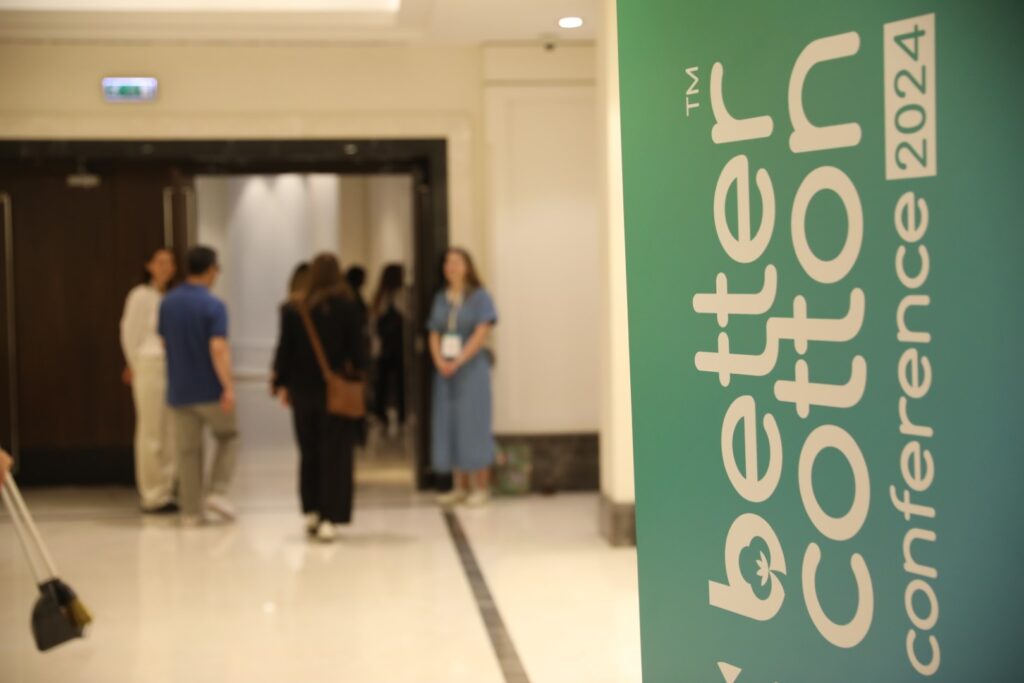

The Better Cotton Conference 2024, an annual global platform for change, successfully concluded on 27 June 2024 after two insightful and inspiring days in Istanbul, Türkiye, one of the most important cotton-producing countries in the world. Over 400 attendees from around the globe joined both virtually and in person, underscoring the event’s international significance.
This year’s Better Cotton Conference has highlighted the crucial need for collective action in the cotton industry. The insights and stories shared over these two days emphasise that empowering farmers and integrating innovative practices are essential for a sustainable future. Our commitment remains steadfast in driving positive change for cotton communities worldwide.
The first day featured diverse insights across 18 sessions, including plenary talks, interactive workshops and breakouts, all focused on accelerating impact for cotton farming communities. This rich diversity of perspectives ensured that all voices were heard, fostering a sense of inclusivity across the different industries present.
Putting People First
The first theme, ‘Putting People First’, underscored Better Cotton’s unwavering commitment to prioritising farmers and farm workers. The sessions challenged attendees to consider what it means to ensure a living income and decent work for cotton farming communities.
Aarti Kapoor, Founder and Executive Director of human rights agency Embode, delivered a compelling keynote on how individuals can drive positive impact across supply chains through a collective vision for the cotton value chain.
Lars Van Doremalen, Impact Director at Better Cotton, emphasised the importance of discussing farmer income, sharing insights from a study the organisation conducted across India. Meanwhile, Leyla Shamchiyeva, Senior Decent Work Manager at Better Cotton, highlighted the need to address root causes of issues such as poverty and lack of rights awareness by connecting communities to social safety nets.
In a one-on-one session with Aarti Kapoor, Nazia Parveen – a Pakistani farmer from the Rural and Economic Development Society (REEDS) – shared her story of overcoming community barriers and emphasised the need for women’s empowerment in agriculture, advocating for equal opportunities for women to support themselves.
Driving Change At Field Level
The afternoon sessions shifted focus to ‘Driving Change at Field Level’, with discussions covering a wide variety of topics from regenerative agriculture to the role of fertilisers in a warming climate.
A panel discussion featuring Laila Petrie of 2050 and Gray Maguire of Anthesis, moderated by Lewis Perkins of the Apparel Impact Institute, explored the complexities of carbon markets and their impact on farmers. They discussed the differences between insetting and offsetting, using the ‘Unlock’ Project as a case study to highlight the importance of driving investment within supply chains.
Field-level representatives, including farmers and instructors from India, Tajikistan, and the US, shared their experiences with adopting regenerative agricultural practices. Their insights offered a diverse perspective on the practices driving field-level progress on farms both large and small.
Understanding Policy and Industry Trends
The second day began with a focus on ‘Understanding Policy and Industry Trends’, examining major developments in the sector and their impact on cotton supply chains.
Vidhura Ralapanawe, Executive Vice President for Innovation and Sustainability at Epic Group, delivered a keynote speech emphasising the need for transformative change in the cotton industry. He urged attendees to move beyond meeting legislative demands and work towards collective action to address pressing needs.
Sessions highlighted the need for all stakeholders, including farmers and suppliers, to actively participate in policy-making. Speakers called for a shift to include the most affected communities in discussions, ensuring legislation benefits smallholder farmers globally.
Reporting on Data and Traceability
In the afternoon, the conversation moved towards ‘Reporting on Data and Traceability’. Better Cotton’s Director of Traceability, Jacky Broomhead, led a discussion on making Better Cotton Traceability possible. A panel shared insights on balancing regulatory compliance with profitability, the efficiencies AI and automation could bring to the supply chain, and the role of traceability in achieving net-zero strategies. Panellists emphasised the need for simplicity in traceability to encourage adoption and reduce the burden on farmers.
Tülin Akın, Founder of Tabit Smart Farming, shared stories of how agricultural technologies can help solve challenges in rural communities. She also highlighted the importance of face-to-face interaction for farmers.
This was followed by a session on Pakistan’s First Mile Traceability pilot, moderated by Better Cotton Pakistan’s Director, Hina Fouzia. Farmers, middlemen, and ginners discussed the challenges of internet and technology access, Better Cotton’s role in supporting adoption, and the importance of constantly reviewing results to drive improvements.
Read more